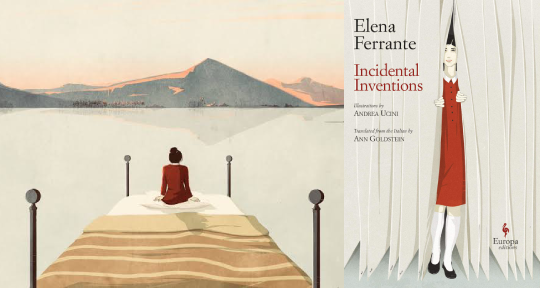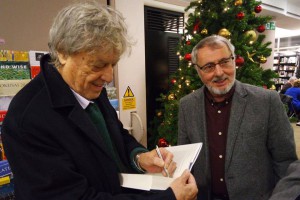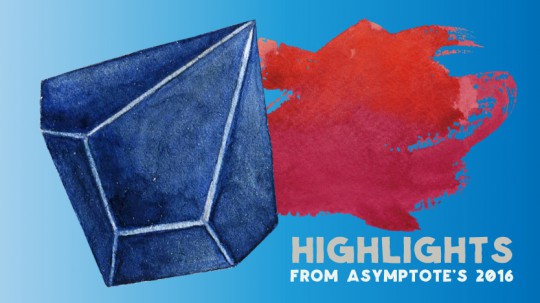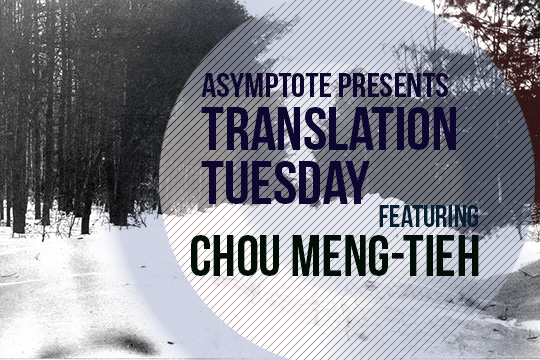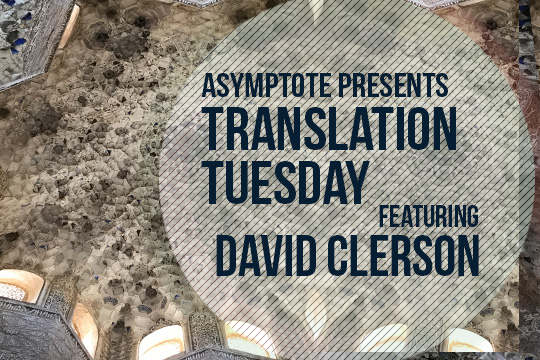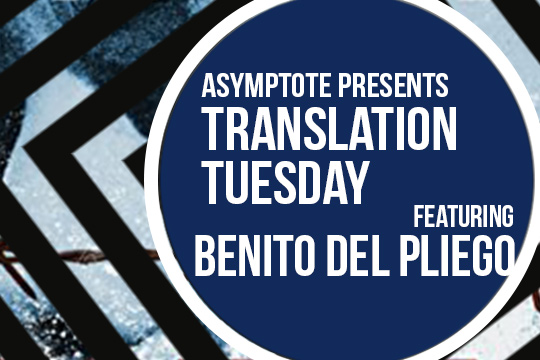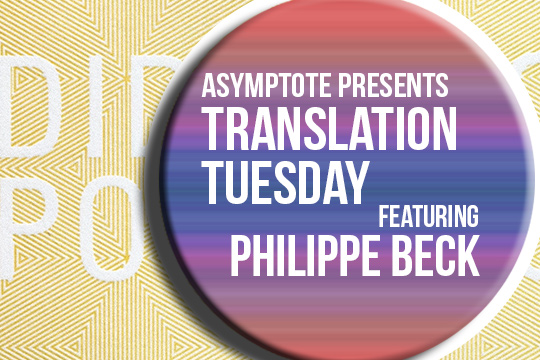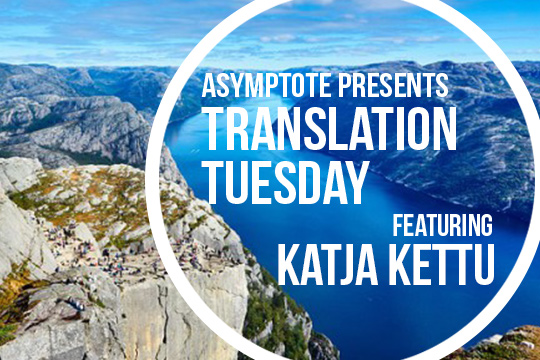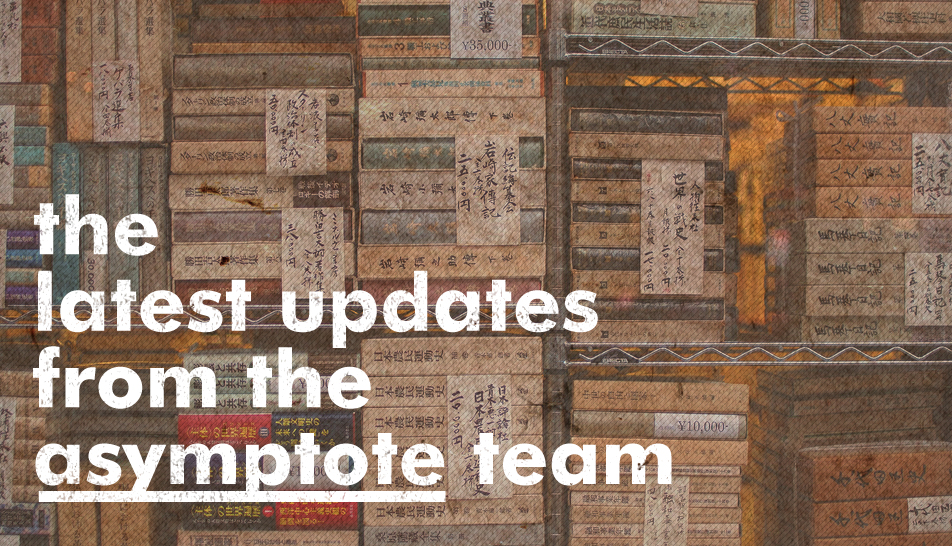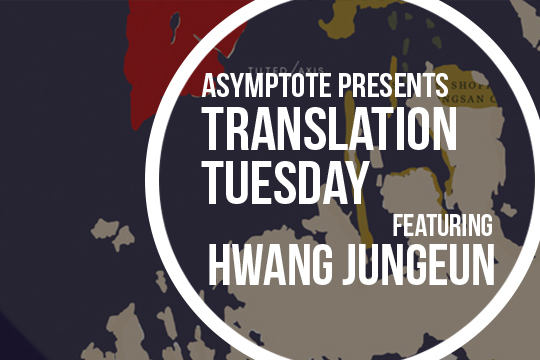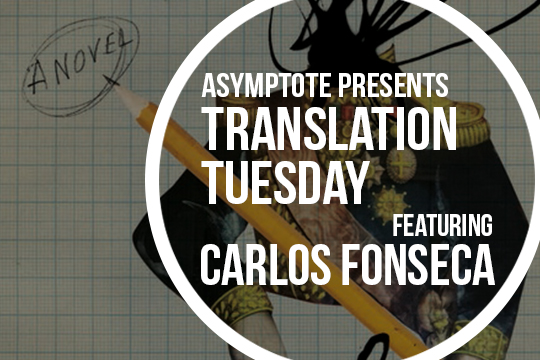1. Amazing scoops
Where to begin? Interviews with Junot Díaz, Ann Goldstein, Yann Martel, László Krasznahorkai, Pierre Joris, Sawako Nakayasu and Ha Jin. Anita Raja‘s essay on “Translation as the Practice of Acceptance.” Sibylle Lacan on her psychoanalyst father, Jacques Lacan. Vicente Huidobro, one of the very first Latin American avant-garde poets. Jan Dammu and Rasool Yoonan, from the current issue. Hsia Yü. The visual artist and poet Caroline Bergvall. Rising fiction stars Youssef Rakha, Olga Tokarczuk, and Marek Vadas. Patrick Chamoiseau on Martiniquais writers. Experimental poems translated by Martin Rock and Joe Pan from the Japanese of Nenten Tsubouchi. Karina Lickorish Quinn‘s Spanglish contribution to our Multilingual Writing Special Feature. Drama by György Spiró. These were some of our favorite things.
2. Our eight events in three continents
This year, Asymptote celebrated its fifth anniversary by meeting readers in the flesh in three continents and five cities (New York, London, Ottawa, Chicago, Belgrade, and Hong Kong; photo documentation and event summaries can be found here). Attracting the biggest turnout with 165 attendees was the New York event held at The New School, featuring Ann Goldstein and Natasha Wimmer in conversation with Frederic Tuten. On the other side of the Atlantic, 2016 saw three Asymptote events at Waterstones, Piccadilly, in March, July, and September. The last, organized in honor of International Translation Day, had Adam Freudenheim, Laura Barber, Deborah Smith, and Laura Barber speaking to a sold-out room of 70, with moderator Jonathan Ruppin saying afterwards that Asymptote had become “a real force in London.”
3. Our partnership with The Guardian turns one
Promoted to The Guardian’s international readership, beyond the small circle of world literature aficionados, Asymptote’s showcase at The Guardian represents, for translators, an unparalleled reach in the English-speaking world. As editor of Translation Tuesdays, I either commissioned new work or partnered with publishing houses to present fiction, nonfiction, and poetry from five continents and twenty-nine countries (including underrepresented ones like Andorra, Uzbekistan, Singapore, Iran, and Congo). In curating for diversity, I attempted to correct a Eurocentric bias that has hitherto characterized the canon (European work accounted for just 41% of this year’s lineup; find the full breakdown by continent and country here). Watch this space for our final Translation Tuesday showcase of 2016 next week, where we present an extract of “Mountain of Light” by Akutagawa Prize winner Gen’yū Sōkyū, translated especially for the occasion by contributing editor Sim Yee Chiang.
4. We gave away $4,500 to six emerging translators
This year, we upped the ante and added one more category to our translation contest: Nonfiction. Awarding $4,500 USD (up from $3,000 in 2014) in prizes to six best emerging translators working into English were esteemed judges Michael Hofmann, Ottilie Mulzet and Margaret Jull Costa; additionally, we arranged with The Guardian to present the top entries in each category over three consecutive Tuesdays (one of them, Sean Gasper Bye’s translation of Filip Springer’s extraordinary History of a Disappearance, was even shared 2,275 times, attesting to the newspaper’s incredible reach). Note: this is now an annual contest, with the deadline for the next edition coming up Feb 1, 2017! As with the 2016 edition, we will also be arranging for the winning entries to be showcased in The Guardian, allowing them to be noticed the world over, and possibly launching careers. Find the details here.
5. Daniel Hahn became our resident Agony Uncle for a year
Fielding questions from curious/mystified international readers, Daniel Hahn presided over a monthly column for one entire year. (His last contribution here contains hyperlinks to all previous columns.) Along the way, he ruffled feathers and sparked controversy by opining that translators’ names needn’t necessarily be featured on covers. But mostly, Daniel’s very popular ‘Ask a Translator’ edified and entertained. When I reached out personally to thank Lin Falk van Rooyen for signing up as a sustaining member recently, she even singled out Daniel’s feature for praise:
As a translator I have personally benefitted greatly from Asymptote’s in-depth, inspiring, informative (esp. ‘Ask a Translator’ by the ever sincere, ever astute Daniel Hahn), essential and yes—ambitious!—endeavour to promote and disseminate world literature.
Part II of ‘Highlights’ continues tomorrow.
***
Join Lin Falk van Rooyen in standing behind our mission: become a sustaining member today! Each additional membership takes us closer to being able to operate beyond April 2017. Or, if you are American, consider a one-time tax-deductible donation via our Fractured Atlas Page.


